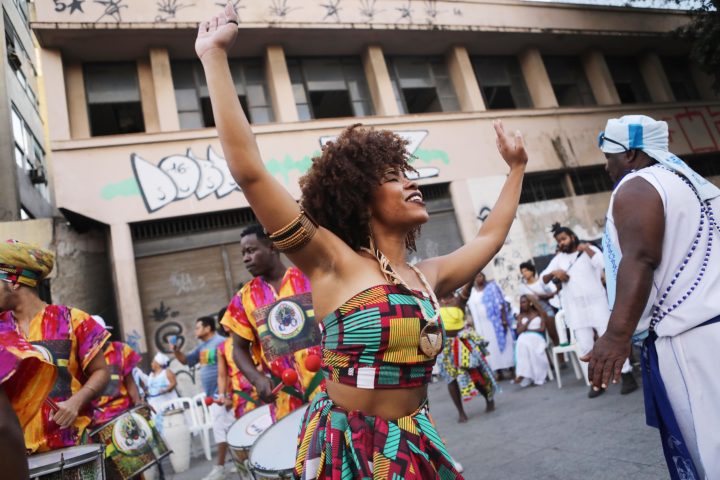For Anyine “Angie” Galvan-Rodriguez, founder of the AfroLatina Natural blog. She says there’s a lot of anti-Blackness in the Latino community, and she’s ready for the Afro and Latino population to be accepted.
It’s something that she’s trying to change through her hair blog.
“When I say I am Afro Latina, people will say, ‘Oh, you’re not Black.’ And I’ll respond, don’t you see my color? If you look at me, I am a Black woman. I identify as a Black woman, and I am Black before anything and I walk this space,” she tells Travel Noire during an interview. “When I talk into a room and I don’t open my mouth where people don’t hear my dialect, they look at me as a Black woman first.”
Galvan-Rodriguez was born in the Dominican Republic and raised in Puerto Rico and the United States.
She says that it’s almost like living in two different worlds identifying as a Black Latina where she is constantly educating people that you can be both.
“Here in America, the idea of being Latino is just so Black and White. It’s either you’re Black, White, or Mexican. Anything outside of Mexico and people will ask, ‘wait, what is that?” she adds referring to the term Afro Latina.
Her feelings of lack of belonging are common among Black Latinos in the United States.
About one-quarter of U.S. Hispanics identify as Afro-Latino, according to a 2016 Pew Research Center survey. The survey suggests that U.S. Latinos with Caribbean roots are more likely to identify as Afro-Latino and more likely to live on the East Coast or in the South.
For Galvan-Rodriguez, she says this identity is multifaceted as much as it is challenging.
Dr. Lissette Acosta is a Professor of Latin American Studies at Borough of Manhattan Community College.
“There are a lot of families in the Dominican Republic who do acknowledge their Blackness, and they embrace it. When people think of the Dominican Republic, there’s a generalization that Dominicans are racists,” she says.
Professor Acosta adds one problem for the generalization that Dominicans are racists is because of media representation.
“As much as you hear that narrative, to the detriment of Dominicans who have acknowledged their Blackness, you don’t hear people talk about the culture such as Afro Dominican folklore, Dominican folklore, or any of those performers, for example.”
She added, “when I go to conferences and people raise their hand and ask why don’t Dominicans see themselves as Black, I’m not shocked because we have not carved a good name for ourselves historically. However, my response is and will always be that Dominicans [sometimes] don’t want to be Black, in the same way some African Americans in the United States don’t feel any connection to Africa.”
But both women agree there is a reckoning happening across the country and in the diaspora that is highlighting Afro-Latino and Afro-Latina culture and shifting the notion that you have to be one or the other.
This reckoning is something that Galvan-Rodriguez thinks all of us from the diaspora will benefit from, as it only proves that those of Afro-descent are connected in more ways than we think when it comes to both the struggles and joys of being Black.
